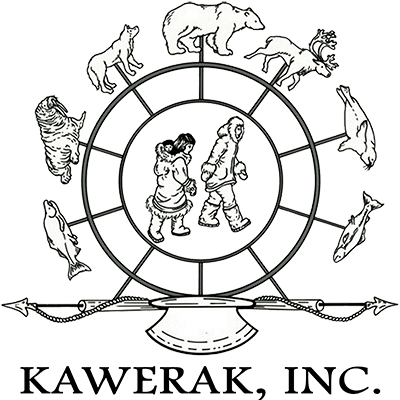What are your educational and career goals? How do your goals relate to environmental conservation?
I have a Bachelor of Arts in Social Work with an Interdisciplinary Minor in Holistic Health and Wellness from UAF. I carry my strengths and experiences as I am currently in the Advanced Standing Master of Social Work program with UAA. It became very apparent to me that this is my calling. I am an alchemist when adversity arises; I know that you have to process the life you go through, and social work has helped me do that. I support traditional knowledge, wellness, and culturally relevant services. Some goals include engaging in traditional health and proactive work. My future career plans focus on combining Social Work Services and becoming a Holistic Health Coach, including roles such as obtaining a license and certification in holistic practices. I understand the importance of nurturing my creativity. The educational and career goals that I aspire to achieve require consistent effort, action, training, prayer, deep awareness, and reflection. My understanding of human behavior, patterns, social determinants of health and health disparities, and social injustice has deepened. I want to empower, uplift, and advocate for individuals and marginalized groups. It gives me a sense of purpose; I am passionate about planting seeds of wellness, serving Apaghllak and Kiyaghneq, individuals, and the world well. This is important for me personally and as a professional because what I feed myself, I feed others.
My work is centered on values, wellness, Indigenous-led conservation, mental and behavioral health, traditional healing, and education. With over a decade of experience giving back and engaging in traditional practices, I’m committed to supporting Inuit people and preserving our way of life. Social work, as a diverse career path, offers the opportunity to make a meaningful impact in many ways while constantly learning, evolving, and educating; I value and appreciate that. Asserting our rightful place in decisions affecting communities is a step toward decolonizing systems and empowering our people. Remembering my roots is a powerful motivator as I strive to represent with dedication and consistency, step into my strengths, step out of my comfort zone, and be true to myself. I gain tools and skills to advocate effectively while using traditional knowledge as I contribute to the well-being of individuals. Social workers are crucial in challenging oppressive systems and supporting those affected. Through my current and future work, I’m learning to promote healing, navigate systems, and build culturally grounded services, bridging the gaps between Indigenous worldviews and Western systems with humility and fortitude.
What does Inuit-led conservation advocacy mean to you?
Inuit-led conservation advocacy means protecting Native homelands and our way of life, which has sustained us for generations. Our people have spiritually harvested and cared for resources that our ancestors have used for millennia; our inherent responsibility is to continue that and protect our lands, waters, and animals in a way that honors our ancestors, reflects our values, and ensures the health of generations. Inuit-led conservation restores our well-being. My path is connected to this vision and strengthens my ability to advocate for it. Inuit-led conservation involves intergenerational healing, preservation, survival, collective wellness, and shared stories.
Please share a reflection of when you have felt a connection to the ocean or the
land.
This past winter, in April, I finally made several trips to Pugughileq Whaling Camp after many years. As I was driving with my dad, it reminded me of how vast St.Lawrence Island (Sivuqaq) is. There are so many sites and camps I’d like to explore, especially during the summertime. On my way to Pugughileq, I passed through Kangii, my ancestors’ camp and land. My other Sivuqaq Siberian Yupik name that my dad calls me is Kangighmii, a clan name. I felt spiritually connected to the land. It was so beautiful and healing to my inner child because I often went to different camps with my mom as a young girl. After eight years, I returned to my hometown, Savoonga (Sivungaq), Alaska. After graduating from Mt. Edgecumbe High School, I attended UAF after the summer break from commercial fishing. I did come home for Christmas/New Year time and funerals every year, but that’s still a long stretch of being away, especially during such formative years. Returning feels powerful! I’ve lived a full chapter away, grown through it, and am reconnecting with my roots from a new place of strength. Being back grounds me in ways I didn’t know I needed. I often miss city life, especially my friends and family in Anchorage and Fairbanks, but it feels so good to be home. I love speaking my language more often, spending time with my family and nature, engaging in subsistence activities and traditional practices, and eating our native foods. I am blessed to live in peace and harmony while pursuing higher education.

